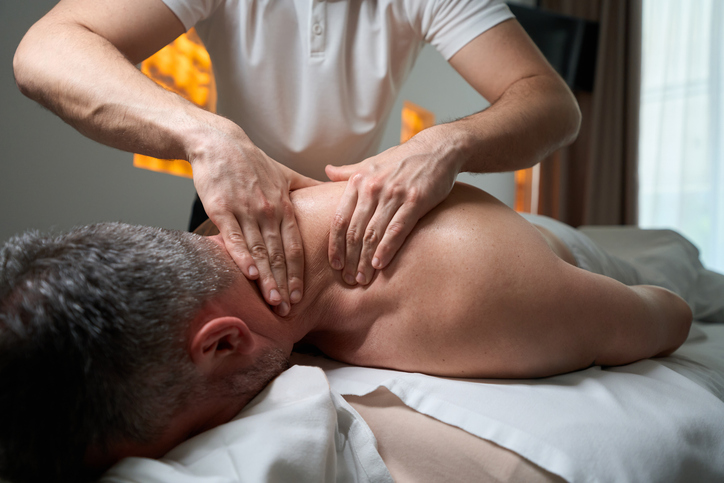
March 7, 2013
I am in the midst of a several-month run of receiving regular massage sessions. Initially motivated by a need for some TLC for my middle-aged body as I
prepare for the Boston Marathon next month, my weekly massage schedule has been a great experience that has prompted me to reflect on being a consumer.
For all our efforts in promoting the value of regular massage, I personally know of no one who receives massage on a weekly basis—perhaps only a few therapists who have established a relationship with a good trade partner and/or somehow set up the perfect system. On balance, however, I find massage professionals are as bad, if not worse, than most massage clients about receiving regular work. As a class of professionals, we just aren’t that great about practicing what we preach.
As President of ABMP, I have partaken in semi-regular massage for many years, but have always lamented the irregularity by which I have received work. I always think, “I’m the president of the largest association in the field, I better be getting the work!” But like most of us, life gets in the way. Travel, meetings, and kids’ events—you name it, it fills up the calendar. As a result, I haven’t been as diligent as I would have liked.
Things are different right now—I have a vested interest (my tender gastrocs and solei) in getting regular work.
This week marks my sixth straight week of getting massage—and I have three more weeks scheduled. My observations:
1) It’s great—seriously, getting a massage once a week is awesome. No surprise here.
2) It’s not cheap. I am a paying client (no strong-arming anyone here). I can’t afford to do this all the time, but it has been worth it. But think about writing a check for $60+ a week for anything—it’s significant. Think about your regular clients and what they do for you. Weekly massage is a car payment.
3) It’s not health care—or it’s the best version of health care.
Yes, it dawned on me as I was on the table last night—just reveling in the feeling of being thoroughly attended to—this experience is not health care. Not even close.
Ever go to a physical therapist? Helpful? Usually. Relaxing, soothing? Nope. Last time I went to my primary care physician—a super woman I love, not just like, LOVE—I waited 55 minutes, and saw her for 6 minutes. What we know as health care in the United States is nothing like what I have experienced the past six weeks with massage. I have received massage at a franchise clinic and in a makeshift spa in our ABMP offices, from four different therapists (and seeing another in the next few weeks). Even from an AMTA member (I didn’t find this out until I was on the table)! And it’s all been good (the ABMP massages have been better).
Massage therapy is intimate; society often associates the word intimacy with sex. That’s not what I mean. But massage is intimate—the PT doesn’t dim the lights or play soothing music. And the chiropractor or MD doesn’t take extra care to engage your body fluidly with permission. These things happen regularly in massage sessions. It’s part of our expectation and part of what makes massage therapeutic, relaxing, soothing, beautiful. And what makes it an investment of intent by the professional—you give a little bit of yourself with every session.
And it’s wonderful.
Road to Boston: Week 20
I am where I am. When I toe the starting line in Hopkinton, Massachusetts, April 15, I will have undertrained by my own expectations, thanks to pneumonia, injury, winter, and my own limitations. However, there is little I can do about those factors now. I am managing my training load. My goal is to be as fresh as possible. I will run 3–4 times a week for the next four weeks, probably make a long run in the 16–18 mile range (Achilles/gastroc/soleus permitting), and hope my legs cooperate.

